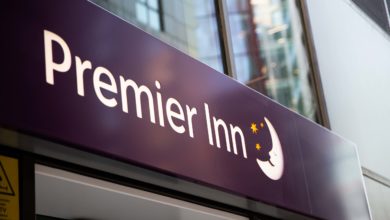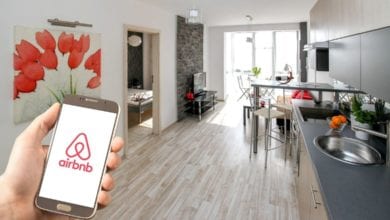Digital communication is even more vital to guest experience post-pandemic
In the first of a series of articles on how hoteliers can use technology to power their post-pandemic recovery, Irene Roberts from Expedia Group explores how hoteliers can use digital tools to help attract, engage and maintain positive relations with travellers

The pandemic has transformed our priorities and preferences when searching for a hotel. Previously cost-focused travellers have been heavily influenced by new protocols governing what they can and can’t do, and concerns over safety and flexibility.
It is vital that hoteliers get to grips with this new travel environment and ensure their customers and potential customers are given an experience that takes these concerns and evolved priorities into account. Ensuring customers feel valued, confident and relaxed – right from their initial enquiries until after their trip is over – should be a priority.
Technology plays an important role in this. In all sectors, from banking to food delivery, people increasingly expect things to happen at the touch of a button, whether it is making a payment or ordering a pizza. The same is true in hospitality. Hotels can implement technology to anticipate customer needs or proactively uncover and resolve issues. By sending simple timely reminders, creating easy-to-use information graphics, or using tools to communicate with and engage customers more effectively, hotels can make a guest’s trip simpler, calmer and in turn more memorable for the right reasons.
Throughout the guest’s journey from searching right through to after their trip is over, today’s mobile-first travellers are looking for personalised content and communication that is relevant to them.
So how can hoteliers use technology to help attract, engage and maintain positive relations with travellers throughout their journey?
Pre-trip planning
During the initial research phase of the journey, travellers view immense amounts of online content. Good content, from robust hotel descriptions to compelling imagery or information on nearby points of interest, has for a long time been an important part of influencing a traveller’s booking decision. But in a post-Covid world, new elements have come into play and become much more important.
Customers now, and for the foreseeable future, are much more demanding of the health and safety information a hotel provides before booking. Tourists increasingly favour hotels with higher health and safety standards, and health, hygiene and safety have become crucial ways to earn customer trust.
Another key trend that has become a significant priority for travellers is flexibility. Refundable lodging rates are around 15 per cent more expensive than non-refundable ones but remain much more popular, emphasising how concerned travellers are that they are able to make changes to their trip or cancel without penalty or financial punishment. Recent Expedia research that suggested that over half of travellers would feel more comfortable booking travel in the following 12 months with full refunds on accommodation and transport cancellations, and nearly 70% of accommodation rate plans on Expedia Group websites are now refundable. Hoteliers that can ease the stress and strain of cancellations, last-minute government policy changes, and complex Covid-19 travel procedures will be able to create a much better guest experience in the run-up to the holiday, in turn generating long-term brand loyalty.
During the trip
Once a traveller has booked, the hotelier can begin opening the lines of communication. Engaging with travellers before their stay is important because it helps the hotelier to anticipate needs in advance, and elicit information that can help them customise the guest’s stay and exceed their expectations. Understanding small pieces of information such as the reason for their visit enables the hotelier to make the small, unexpected gestures that delight guests and show them they are valued. Requesting and sharing information in advance also makes the check-in process much smoother, faster and more pleasurable for the guest.
Communication with guests should continue during their stay. Of course hoteliers will have staff on hand to assist guests, but providing an alternative means of interacting digitally is important. While guests might alert you in person to major issues, they may not choose to flag minor annoyances like delays at check-in or a slow draining sink in person. Providing a messaging platform to enable you to identify and address issues or concerns is invaluable to protecting your online reputation, and it can also give you important management information such as tracking response times and how much of an impact that has.
Our own experience, based on millions of conversations through our guest communication platform for hoteliers, suggests that engaged guests are 40% more likely to return to a property.
Post-trip
After the trip, travellers want to relive their experiences by posting on social media and leaving reviews. Reviews are incredibly important for providing actionable insights on what guests think of a hotel, but can also have a significant influence over whether other potential guests book with you or go elsewhere. Our research suggests that travellers are 72% more likely to pay more for a hotel with higher guest ratings.
As well as monitoring post-trip reviews, hotels should make sure they respond to questions and concerns from past guests. Some 62% of Expedia user say that seeing hotel management respond to reviews generally makes them more likely to book and 87% agree that seeing an appropriate response to a bad review improved their impressions of a hotel.
Hoteliers should invest in digital tools that enable them to actively manage reviews. For example, they can send automatic reminders to encourage guests to comment; help you acknowledge feedback and share it with your staff; and analyse reviews to quickly identify areas that may need attention. Actively managing reviews helps hotels to enhance their reputation and capture more business.
From the first moment a traveller searches for a hotel stay, to the days and weeks after their trip ends, using digital tools to help facilitate effective communication and dialogue can help hotels attend to concerns, make their guests’ experience smoother, and on occasions, surprise and delight them. In a post-Covid world where travellers are even more concerned about key issues like safety and flexibility, this has become even more important.
By Irene Roberts, Director of Market Management, Expedia Group









